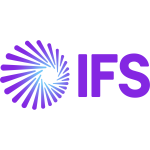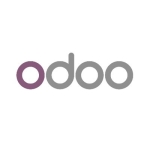We are consultants who help supervise our customers' implementation projects. Two of our customers use S4HANA. The older ones are on the ECC platform.
We found that the implementing partners themselves are struggling with S4HANA's features. It's not an exact translation of the older ECC, so SAP has taken a new route to do things with S4HANA. Maybe it's a good product, but the implementing partners also like to have an in-depth understanding of the full feature set the product offers. There are areas where even the implementer has to go back to set, which takes time, so that's one of our major concerns.
The older implementations were cloud-based, but one is happening now in one of the larger utilities, which sells services to around 4 million consumers. That's an ongoing project that hasn't gone live yet. This will be the real test. In a year, we'll know, and we can give more feedback.
Another complaint I have is that the screen source is disjointed. When I say this, I'm speaking from a user experience perspective. I don't know the S4HANA database, so I can't say if it's good or bad. I am sure that S4HANA would have certain limitations compared to Oracle, which is the gold standard for databases. Maybe there are some challenges in the backend, but I don't dwell on those because I'm not a technician. But the graphical interface requires improvement, and its flow should be very smooth.
Also, the Fiori app is very basic. They need to become richer because people tend to use Fiori to access the S4HANA application to save on license costs. Fiori gives you access because it's a web client, and they market it as an app. It's not really a full-fledged app, but the roadmap has to be cleared from SAP. And when its capabilities improve, it gives a native app experience when people use Fiori.
I haven't been using S4HANA for long. It's been two years now.
S4HANA is relatively stable, but it's not as stable as ECC was. ECC had a long time to mature, so S4HANA still has a few years to go before it can achieve the level of stability that we've come to expect from SAP.
We've primarily relied on the local implementers for support, and there are challenges whenever they need to refer back to SAP's own technical support. It usually takes longer than expected in many cases. Sometimes they're pretty fast, but they're usually not, which is a serious concern.
We've worked with three of the biggest products in the ERP segment: S4HANA, Oracle EBS, and Microsoft Dynamics AX. Microsoft Dynamics is pretty straightforward. It's not as complex and offers a good user experience, whereas SAP through Fiori gives a certain level of user experience, but that's not as good as what Microsoft offers. But the rich line where you go through the desktop license — that user interface is still cumbersome. It's not as user-friendly I must say. On the other hand, Oracle is the middle of the two. I won't say that it's as good as Microsoft's user experience. However, while it is a bit more complex than Microsoft, it's not as complex as SAP.
I would currently rate S4HANA seven out of 10. We tell our clients that SAP's roadmap shows us that S4HANA will mature in time. It won't happen tomorrow. They have to make an informed decision whether they want to live with certain delays in getting certain fixes or go with another solution. SAP is such a big name, so half the time, people are willing to live with those delays with the expectation that things will get better in a year or two. SAP is a trusted name, and I'm sure they must be doing something now to get S4HANA up to speed. I hope they understand that.














